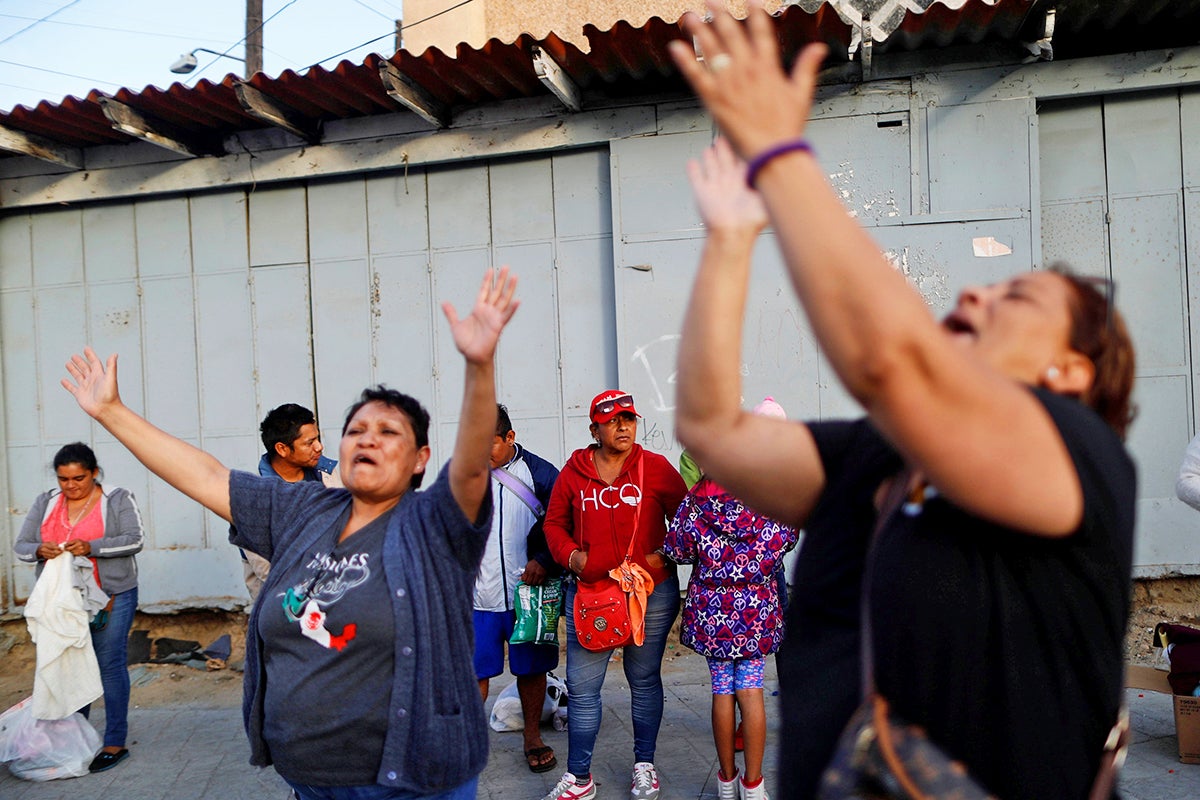US and Mexico negotiating new asylum deal that could put immigrants at ‘risk of kidnapping, sexual assault, and trafficking’
The US has a similar deal with Canada, but immigrant advocates say that the circumstances are completely different

Your support helps us to tell the story
From reproductive rights to climate change to Big Tech, The Independent is on the ground when the story is developing. Whether it's investigating the financials of Elon Musk's pro-Trump PAC or producing our latest documentary, 'The A Word', which shines a light on the American women fighting for reproductive rights, we know how important it is to parse out the facts from the messaging.
At such a critical moment in US history, we need reporters on the ground. Your donation allows us to keep sending journalists to speak to both sides of the story.
The Independent is trusted by Americans across the entire political spectrum. And unlike many other quality news outlets, we choose not to lock Americans out of our reporting and analysis with paywalls. We believe quality journalism should be available to everyone, paid for by those who can afford it.
Your support makes all the difference.The United States and Mexico are reportedly discussing a policy that could greatly limit the number of asylum seekers arriving at America’s southern border.
The policy, known as a “safe third country” agreement, would require asylum seekers travelling north from Central America to apply for asylum in Mexico, if they physically step foot in the country before the United States.
That means individuals seeking to flea from violence and economic oppression would be forced to live in Mexico instead of being able to make their way north before eventually asking for help from the US government — and it is unclear what would happen to asylum seekers originating in Mexico. The two countries will be discussing the issue during meetings Thursday and Friday, officials told Politico.
Details about the potential deal are scarce, and it is not clear if Mexican officials would be willing to strike a deal with the United States amid President Donald Trump’s frequent attacks on the Mexican people, their government, and his insistence that America’s southern neighbour pay for a wall dividing them.
A spokesman for the Department of Homeland Security, which oversees the United States’ immigration enforcement apparatus, declined to comment on the reported negotiations.
The United States currently has a “safe third country” agreement with Canada, but Michelle Brané, the director of migrant rights and justice for the Women’s Refugee Commission, says that creating a similar deal with Mexico makes little sense.
Citing rising violent crime rates in the country, sparked largely by powerful and dangerous cartels, Ms Brané said that, for many asylum seekers, forcing them to stay in Mexico would limit their ability to seek safety.
“It really limits their ability to seek asylum. It’s also just another obstacle in their … ability to seek protection,” Ms Brané said. “It’s not a safe country, in large part, for many people. Then we [also] have people seeking asylum from Mexico into the US. One of the criteria should be that you’re not a refugee producing country.”
Eleanor Acer, the senior director with Human Rights First, echoed the sentiment.
“Mexico is not a ‘safe third country’ in any sense,” Ms Acer said in a statement. “Those seeking protection face grave risks of kidnapping, disappearance, sexual assault, trafficking, and other harms in Mexico. The administration has waged a year-long campaign to undermine the asylum system and vilify those who seek protection at our border; today’s negotiations are merely the latest tactic to shut the door on those who are desperate to live in freedom and safety. Trump’s vile labelling of immigrants as ‘animals’ is the latest indication that he isn’t interested in solving real migration challenges, but rather in fomenting fear.”
Beyond those concerns, other limitations concern Ms Brané. Mexico only has four offices that process asylum seekers, and Ms Brané noted that there are few employees in charge of processing asylum requests at it is. Adding a considerable log to that list would overburden that system, she said.
Plus, the idea could run counter to proven strategies for successful immigration: Ties to community.
“The entire history of people seeking protection and seeking refuge… people always go to where they know people,” Ms Brané said, noting that many people who apply for asylum in the United States tag family or friends as proof they have connection to the communities they want to seek shelter in. “People flee to where they have family. That was true with people fleeing World War 2 Germany, and it’s true with Central America. You go to where you know people.”
Join our commenting forum
Join thought-provoking conversations, follow other Independent readers and see their replies
Comments